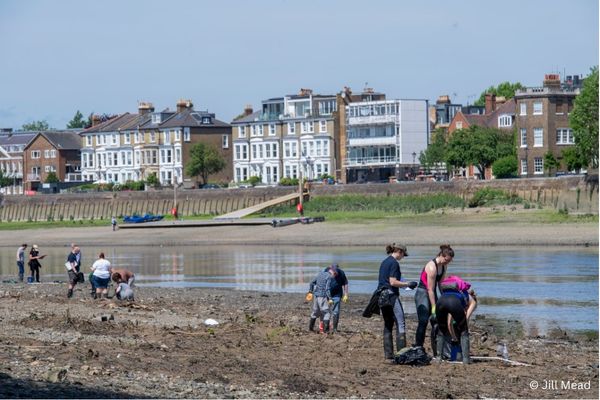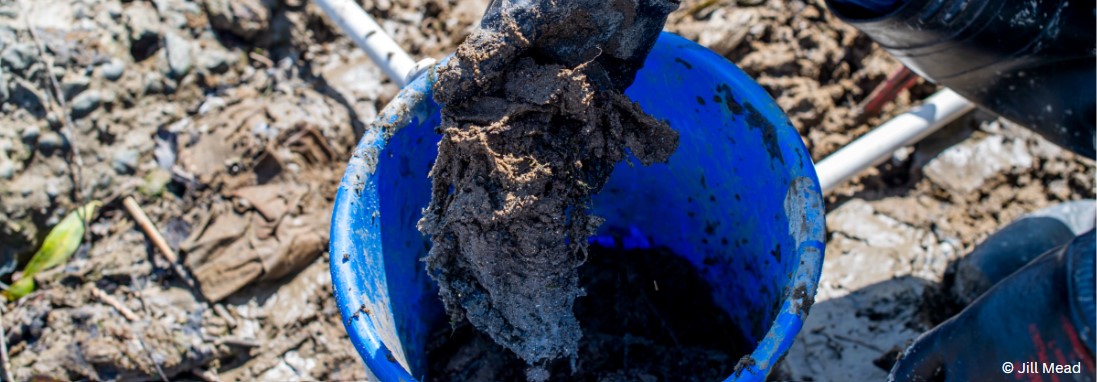The plastic wet wipes issue, explained

Wet wipes are a convenient and easy-to-use tool for many routine activities: removing make-up, cleaning surfaces, disinfecting our hands, and others. Especially if you’re a parent, baby wipes become your best friend instantly. However, as much as they can be a blessing to clean up messes while saving us time, they’re a curse for nature. A great number of companies use plastic fibres in their wet wipes, which don’t degrade and amount to the current plastic pollution crisis we’re experiencing.
Wet wipes are commonly flushed down toilets, contributing to sewage blockages. In essence, they are designed to not easily break down, so when they end up in our sewage system they get caught in pipes, pile up and trap other waste, causing blockages in the system. 75% of drain blockages are caused by wet wipes and they also account for the biggest cause of fatbergs, a combination of flushed non-biodegradable solids and fats.
Sewage-based wet wipes end up in the river after sewage overflows dump them into the water. We currently have wet-wipe islands in slow-moving parts of the River Thames, such as Hammersmith, where they mount up on the foreshore, changing the shape of the river, before breaking down into microplastics.
Wet wipes cause a range of environmental harms to wildlife and negatively affect human health.
The Thames has some of the highest recorded levels of microplastic for any river in the world. In a 2020 study, scientists found that 95% of the mitten crabs examined had plastic in their stomachs, while 75% of sampled European flounder had fibres in their guts. These shocking numbers give a dimension to how plastic is choking wildlife and polluting our rivers.
Since 2017, Thames21 has been tracking wet wipes in the Thames’ foreshore. Our River Action Groups and citizen scientists have collected more than 137,000 wipes over 94 clean-up events across London. We are constantly monitoring the number of wet wipes in Hammersmith with our Big Wet Wipe Counts, which have been happening since 2018.
We observed wet wipes hotspots that covered the area of two tennis courts, some of them with a density between 50-200 wipes per square metre. After witnessing first-hand the damages caused by them, we started advocating for the government to ban plastic in wet wipes. This measure was first mentioned by the government in 2018. However, little has moved forward since then.
While a ban on plastic in wet wipes is welcome, it’s not enough to improve the health of our rivers. We believe that no single tool will fix the pervasive issue of wet wipes in our rivers, so we advocate for multi-stakeholder action. We need policymakers, manufactures and retailers, water companies and the general public on board to tackle this problem.
- Government must take action to ban plastic in wet wipes and regulate for stronger labelling standards so that customers know to bin not flush wipes of any kind;
- Manufacturers and retailers must create innovative plastic-free alternatives that don’t cause as many blockages and improve labelling so that they are playing a role in educating the public about how to dispose of wet wipes;
- Water companies must invest further in our sewage infrastructure so that it relies less on sewage overflows and install more screens to prevent wet wipes entering the environment;
- Consumers need to dispose of their wet wipes correctly; bin it don’t flush it! Only the 3 Ps (pee, poo and paper) should be flushed down the toilet.
These changes can seem small in the bigger picture, but every action counts.
We’ll continue campaigning to protect our waterways and we hope you join us. The next Big Wet Wipe Count will be on the 1st of October in Hammersmith. Find out more about it and register here.
